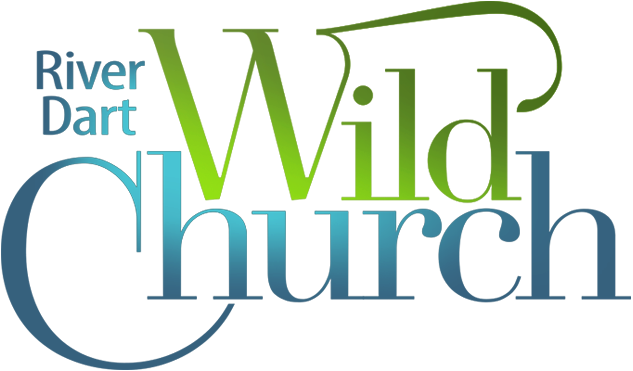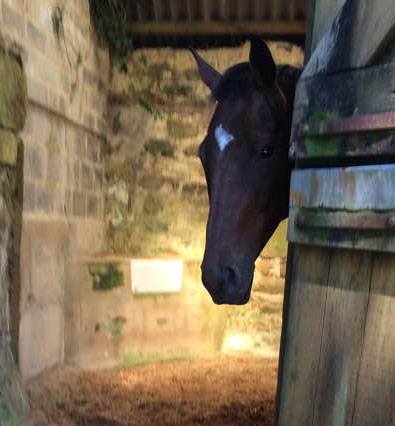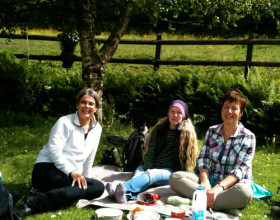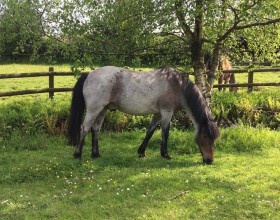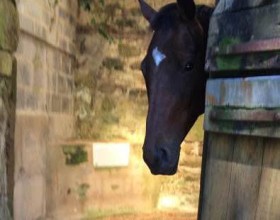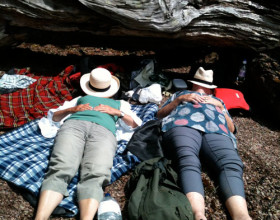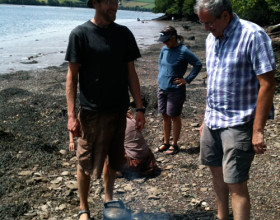Our wonder filled year of ‘meetings with remarkable trees’ drew to a close recently with our last two events – June’s oak pilgrimage and July’s canoe pilgrimage. As my (Sam’s) summer holy-days are now beginning, please forgive me if I gather stories from these two beautiful days together in this one journal post, before Wild Church takes a bit of break to reflect and prepare for our next year of adventures focussed around sacred springs and wells.
Casting my mind back to just before midsummer, it was on Open Farm Sunday (June 11th) that our small pilgrim band headed off to Dartmoor. Once again, the wild church weather magic was working well for another full day outdoors. We moved from multi-sensory meditation to a silent walk around Vennford Reservoir that brought us to the old ford just below the dam, where now a lively stream flows into the oak woods.
Here we paused for another taste of celtic storytelling, imagining ourselves moving through the shape shifting transformations of Taliesin as he is pursued by the Goddess Ceridwen. Sitting among the moorland flowers beside the water, it was easy to imagine being a hare slipping through the long grasses, or a salmon leaping up the rocky river, or a bird rising and riding on the warm summer thermals. After the final transformation, when Taliesin becomes a grain gobbled up by the black hen of Ceridwen, to be born again as her beloved child, again it was easy to imagine her wrapping him in a seal skin bag to float down just such a stream as we sat beside and on into a river like the Dart and down to the sea. Until he returns as Taliesin, ‘shining brow’ – a poet and seer.
I found myself now reflecting on this motif of being ‘born again’ as a phrase used in many spiritual traditions to mark an inner re-orientation, often preceding by an initiatory time of deep suffering, struggle or change. Francis Thompson’s poem ‘The Hound of Heaven’ expresses in Christian terms a similar sense of being pursued by God:
I fled Him, down the nights and down the days;
I fled Him, down the arches of the years;
I fled Him, down the labyrinthine ways
Of my own mind; and in the mist of tears
I hid from Him, and under running laughter.
Up vistaed hopes I sped;
And shot, precipitated,
Adown Titanic glooms of chasmèd fears,
From those strong Feet that followed, followed after.
I’m often intrigued by how difficult it can be for a person of (any) faith to recognise this common ground of transformation in an ‘other’ tradition, of dying to a small self in order to be born into an experience of deeper connectedness and through that being naturally inspired into living in a way that serves a greater good. My pagan self hears this in Taliesin’s story and my christian self hears it in the story of Jesus. My deeper Self hears it equally in both. As the poem above concludes:
All which I took from thee I did but take,
Not for thy harms,
But just that thou might’st seek it in My arms.
All which thy child’s mistake
Fancies as lost, I have stored for thee at home:
Rise, clasp My hand, and come!’
Halts by me that footfall:
Is my gloom, after all,
Shade of His hand, outstretched caressingly?
‘Ah, fondest, blindest, weakest,
I am He Whom thou seekest!
Thou dravest love from thee, who dravest Me.
After storytelling and a silent communion we continued on our way. Walking on under the oaks is to come into communion with an ancient community who have gathered along this moorland stretch of the river (whose name may come from a celtic word for oak) for hundreds of years and who know all about being part of a deeper connectedness and a life of service. We could breathe in fresh air in that moment because these trees have breathed it out. Here we were in the presence of the most generous of beings, whose roots, sap, bark, breath, leaves, fruits provide shelter and nourishment for myriads of creatures, from mycorrhizal fungal threads, to insects, birds and mammals including our human selves. Pausing beside a mature oak around midday was not so very different from our earlier pause beside the stream, as around 70 kg of water are drawn up from the ground every hour. While through photosynthesis the tree also ‘drinks in’ sunlight and carbon dioxide to create new wood and our fresh air. A mature tree releases enough oxygen each year to keep a person alive – something us humans would do well to keep more in mind!
Clambering out of the woods and up onto Bench Tor, we were greeted with a long view… from the reservoir where we began and along the snaking path of the river, across the farm that is our destination and beyond towards the sea. Just a glimpse again of a wider perspective, before we walked on to join Sue Blagburn of Adventures with Horses for our very own ‘Open Farm Sunday’ experience. Sue is adept at enabling another kind of interspecies communion as she gently encouraged us to meet freely with the horses on her moorland farm. Some magic moments quietly unfolded as horses and humans came gently eye to eye, nose to nose and heart to heart, until at the end of the day we are heading home again feeling, like Taliesin, quite transformed by our journeys with the wild.
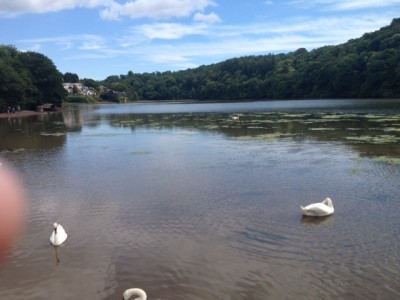
Just a month later a larger pilgrim band returned to the River for our final pilgrimage of this year. This time a dozen of us were travelling on the body of the Dart herself, in a single large canoe, ably skippered by Hugh of Canoe Adventures. Hugh commented on how different a day with Wild Church was from his other groups, as the usual noisy chaos of setting off was replaced by gathering in a circle for silent meditation to open our senses to being part of nature. Soon we were quietly learning to work together to paddle off from Tuckenhay and then silently drifting downstream, our line of pilgrims mirrored by a line of geese that journeyed alongside us.
At Stoke Gabriel we headed back to land for a while, with some of us walking through the community orchard and into the church yard to spend time with the ancient yew there. Inside the Church the congregation were celebrating Sea Sunday and a rousing chorus of ‘Rule Britannia’ came through the open door as Wild Church sat quietly outside. Some of the words of the original poem are actually rather beautiful and I particularly like “The Muses, still with freedom found, Shall to thy happy coast repair; Blest Isle! With matchless beauty crown’d, And manly hearts to guard the fair.” Though I think I’ll have to change that last line to ‘womanly hearts’!
Back on the water again, we continued to a beautiful river beach for our ‘bring and share’ lunch (and siesta!) followed by our collaborative communion. This is always the heart of the day for me and today our ‘fruits of the earth’ were organic berries and beach brewed fresh herb tea from my garden, that we blessed together and shared around the circle with each other and with the earth and river also.
The journey home was a blend of friendly conversation and quiet moments; of watching diving ducks, fish jumping or the cormorants drying their wings. Though some of us had never met before, we had come into community and were by now working well together as we kept in stroke past the pub. I almost expected the great British public sipping their pints on the quayside to break into a spontaneous chorus of ‘Rule Britannia’ as we paddled proudly past! Though I could sense the ache of muscles well used, I think I was not alone in finishing the day feeling deeply peaceful and enlivened by our day together on the water. It was a celebratory conclusion for our third year of Wild Church and I look forward to further adventures!
